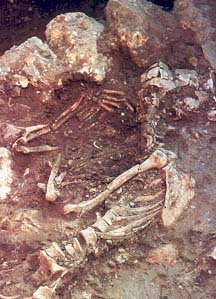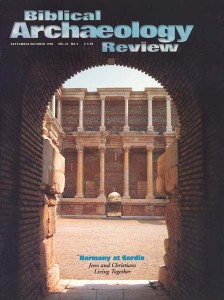What Bones Tell Us
Sidebar to: Death Knell for Israel Archaeology?
So what if archaeology is stopped dead in its tracks?

What will be the consequences if Israel’s already restrictive laws on archaeological excavation get even tougher?
“An enormous loss to science,” said Donald Ortner, former acting director of the Smithsonian’s Museum of Natural History and a physical anthropologist who has worked with the Bab edh-Dhra’ excavations in Jordan.
“It’s ironic that Israel, so progressive in much of its science, has taken this direction. It’s the modern equivalent of a book burning,” Ortner told BAR.
Physical anthropologists fear that their discipline, at least in Israel, will be deprived of its most critical materials: the bones of ancient men and women that tell scientists so much about our ancestors—and indeed about ourselves.
Skeletal remains are one of the few direct sources of information about mankind’s physiological history, according to Patricia Smith, a physical anthropologist at Hebrew University and Hadassah Medical School. “Such research is a vital component of evolutionary medicine, in that it enables scientists to trace the pattern and development of diseases in different places and at different times,” Smith told BAR.
Already a library member? Log in here.
Institution user? Log in with your IP address.

